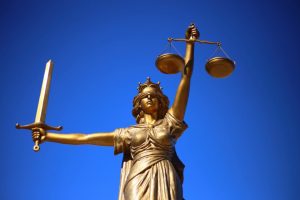 In this patent infringement action, the plaintiff, International Designs Corporation, LLC (“IDC”), moved to disqualify the counsel for defendant Hair Art Int’l, Inc. (“Hair Art”). IDC moved to disqualify counsel for Hair Art on the grounds that Hair Art’s counsel also represented/represents an entity named Halo Couture, LLC, a California limited liability company (“HC1”) and, potentially, Halo Couture, LLC, a Delaware limited liability company (“HC2”), which were apparently “sister companies” of IDC and share a common parent.
In this patent infringement action, the plaintiff, International Designs Corporation, LLC (“IDC”), moved to disqualify the counsel for defendant Hair Art Int’l, Inc. (“Hair Art”). IDC moved to disqualify counsel for Hair Art on the grounds that Hair Art’s counsel also represented/represents an entity named Halo Couture, LLC, a California limited liability company (“HC1”) and, potentially, Halo Couture, LLC, a Delaware limited liability company (“HC2”), which were apparently “sister companies” of IDC and share a common parent.
The district noted that neither HC1 and HC2 were parties to the litigation. The district court also noted that there is “no contention that IDC, Hairtalk GmbH or Günter Alex were ever clients of Defendant’s counsel. The district court also found that IDC had not “presented the Court with any case indicating that representation of an entity that serves as a ‘sister company’ to a present litigation opponent provides a basis under applicable law for disqualification of that counsel in the present litigation, either by way of an actual-conflict theory or a theory based on the presumption of possession of confidential information. Moreover, Movants’ ‘unity of interests’ theory appears to look to a unity of interest between an entity and its ‘parent,’ not between an entity and its ‘sister.’”
The district court also disregarded IDC’s other theories for disqualification, concluding that IDC had “not demonstrated a sufficient basis to conclude that there is a ‘subject matter (technology) based conflict’ because of HC1-HC2’s pending design patent application and Defendant’s product line. Nor have Movants demonstrated that there is a realistic basis for a potential or future conflict based on the continued presence of an antitrust affirmative defense in this action. Their concern on that point is that Defendant ‘can pursue its anti-trust defense, seeking competitive sales data for the hair extension industry, including sales records of HC1 and HC2 and IDC’ and that ‘[i]f DEFENSE COUNSEL pursue the anti-trust discovery, such discovery demand to HC1 and HC2 will pass through’ an attorney who is both in-house general counsel of IDC and ‘special in-house I.P. counsel’ of the corporate parent and HC2.”




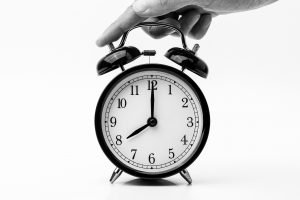 In this patent infringement action, the defendant, Playmonster LLC (“Playmonster”), requested that the district court stay discovery during the pendency of its forthcoming dispositive motion. As part of its request, Playmonster contended that a dispositive motion “would be the most efficient resolution of this case,” and that a stay of discovery would promote judicial efficiency and conserve the Parties’ resources, which would include reducing the attorney’s fees that would be spent on the case should the dispositive motion be granted.
In this patent infringement action, the defendant, Playmonster LLC (“Playmonster”), requested that the district court stay discovery during the pendency of its forthcoming dispositive motion. As part of its request, Playmonster contended that a dispositive motion “would be the most efficient resolution of this case,” and that a stay of discovery would promote judicial efficiency and conserve the Parties’ resources, which would include reducing the attorney’s fees that would be spent on the case should the dispositive motion be granted. During discovery, Sprint responded that it had received an email several years before the lawsuit was filed with an offer to purchase the patent-in-suit. An attachment to the email identified and described the patent-in-suit. Although the general counsel for Sprint forwarded the email and attachment to several Sprint employees, Sprint explained that it believed the attachment was never opened. TC Technology took the deposition of one of these employees and then filed a motion to amend the complaint to add a claim for willful infringement. Because the motion was filed after the cut-off established to amend the pleadings, TC Technology could not amend the complaint without a showing of good cause.
During discovery, Sprint responded that it had received an email several years before the lawsuit was filed with an offer to purchase the patent-in-suit. An attachment to the email identified and described the patent-in-suit. Although the general counsel for Sprint forwarded the email and attachment to several Sprint employees, Sprint explained that it believed the attachment was never opened. TC Technology took the deposition of one of these employees and then filed a motion to amend the complaint to add a claim for willful infringement. Because the motion was filed after the cut-off established to amend the pleadings, TC Technology could not amend the complaint without a showing of good cause.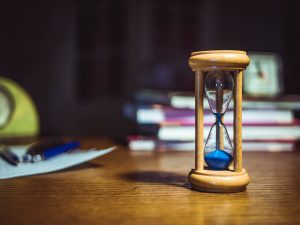 Stuebing had previously served multiple discovery requests, including interrogatories and document requests. Over a year after responses to the discovery requests were due, the district court ordered the defendant to fully respond to the requests in several different court orders. Despite these orders, the defendant provided Stuebing with incomplete discovery information.
Stuebing had previously served multiple discovery requests, including interrogatories and document requests. Over a year after responses to the discovery requests were due, the district court ordered the defendant to fully respond to the requests in several different court orders. Despite these orders, the defendant provided Stuebing with incomplete discovery information. As explained by the district court, Bayer asserted that the license resulting from the hypothetical negotiation would be a non-exclusive, running royalty license between competitors, and of Dr. Rausser’s four selected licenses, only one was a non-exclusive license, two were between competitors, and none of them used a running royalty.
As explained by the district court, Bayer asserted that the license resulting from the hypothetical negotiation would be a non-exclusive, running royalty license between competitors, and of Dr. Rausser’s four selected licenses, only one was a non-exclusive license, two were between competitors, and none of them used a running royalty. In the ongoing litigation war between Qualcomm and Apple, spanning multiple forums around the country, Qualcomm moved to exclude Apple’s technical experts’ reliance on certain license agreements by asserting that the agreement involved technology that was not sufficiently comparable. After reviewing the license agreements, the experts’ opinions, and the law, the district court concluded that Qualcomm’s motion should be granted.
In the ongoing litigation war between Qualcomm and Apple, spanning multiple forums around the country, Qualcomm moved to exclude Apple’s technical experts’ reliance on certain license agreements by asserting that the agreement involved technology that was not sufficiently comparable. After reviewing the license agreements, the experts’ opinions, and the law, the district court concluded that Qualcomm’s motion should be granted.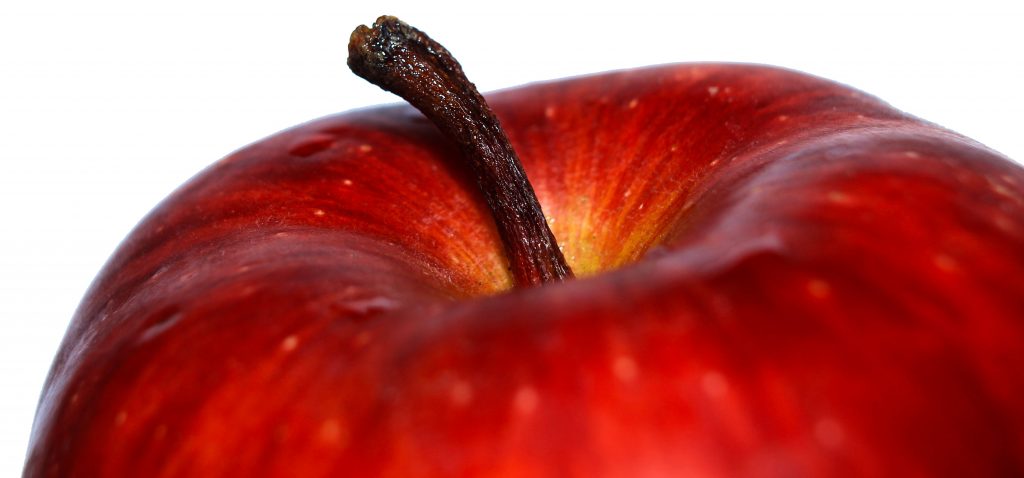 patents at issue here. The Federal Circuit has cautioned “that ‘district courts performing reasonable royalty calculations [must] exercise vigilance when considering past licenses to technologies other than the patent in suit,’ and ‘must account for differences in the technologies and economic circumstances of the contracting parties[.]’” VirnetX, Inc. v. Cisco Systems, Inc., 767 F.3d 1308, 1330 (Fed. Cir. 2014) (citations omitted). “When relying on licenses to prove a reasonable royalty, alleging a loose or vague comparability between different technologies or licenses does not suffice.” LaserDynamics, Inc. v. Quanta Computer, Inc., 694 F.3d 51, 79 (Fed. Cir. 2012).
patents at issue here. The Federal Circuit has cautioned “that ‘district courts performing reasonable royalty calculations [must] exercise vigilance when considering past licenses to technologies other than the patent in suit,’ and ‘must account for differences in the technologies and economic circumstances of the contracting parties[.]’” VirnetX, Inc. v. Cisco Systems, Inc., 767 F.3d 1308, 1330 (Fed. Cir. 2014) (citations omitted). “When relying on licenses to prove a reasonable royalty, alleging a loose or vague comparability between different technologies or licenses does not suffice.” LaserDynamics, Inc. v. Quanta Computer, Inc., 694 F.3d 51, 79 (Fed. Cir. 2012). In a patent infringement action, Takeda Pharmaceuticals America, Inc., and Takeda Pharmaceuticals U.S.A., Inc.’s (collectively, “Takeda”) filed a motion to disqualify Baker Botts, L.L.P. (“Baker Botts”) from representing Defendants Zydus Pharmaceuticals (USA) Inc. and Cadila Healthcare Limited (collectively, “Zydus”). Takeda moved to disqualify Baker Botts from representing Zydus based on Baker Botts’ alleged previous representation of Ethypharm S.A. (“Ethypharm”) in earlier litigation involving Takeda’s Prevacid® SolutabTM product.
In a patent infringement action, Takeda Pharmaceuticals America, Inc., and Takeda Pharmaceuticals U.S.A., Inc.’s (collectively, “Takeda”) filed a motion to disqualify Baker Botts, L.L.P. (“Baker Botts”) from representing Defendants Zydus Pharmaceuticals (USA) Inc. and Cadila Healthcare Limited (collectively, “Zydus”). Takeda moved to disqualify Baker Botts from representing Zydus based on Baker Botts’ alleged previous representation of Ethypharm S.A. (“Ethypharm”) in earlier litigation involving Takeda’s Prevacid® SolutabTM product.
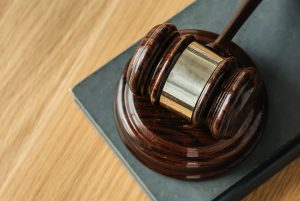 In this patent infringement action, the plaintiff, Whirlpool Properties (“Whirlpool”) noticed several depositions of third-party witnesses near the discovery cut-off. The defendant, Filters Fast, moved for an order to stop the depositions.
In this patent infringement action, the plaintiff, Whirlpool Properties (“Whirlpool”) noticed several depositions of third-party witnesses near the discovery cut-off. The defendant, Filters Fast, moved for an order to stop the depositions.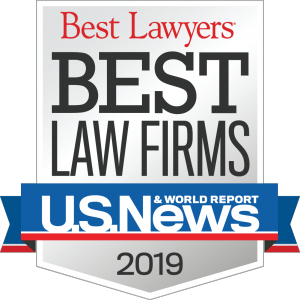 “Achieving this recognition is especially gratifying as it reflects the perspective of our clients and peers,” said Stan Gibson, Chair of JMBM’s Patent Litigation Group. “Our patent litigators are committed to solving problems and achieving clients’ objectives.”
“Achieving this recognition is especially gratifying as it reflects the perspective of our clients and peers,” said Stan Gibson, Chair of JMBM’s Patent Litigation Group. “Our patent litigators are committed to solving problems and achieving clients’ objectives.”